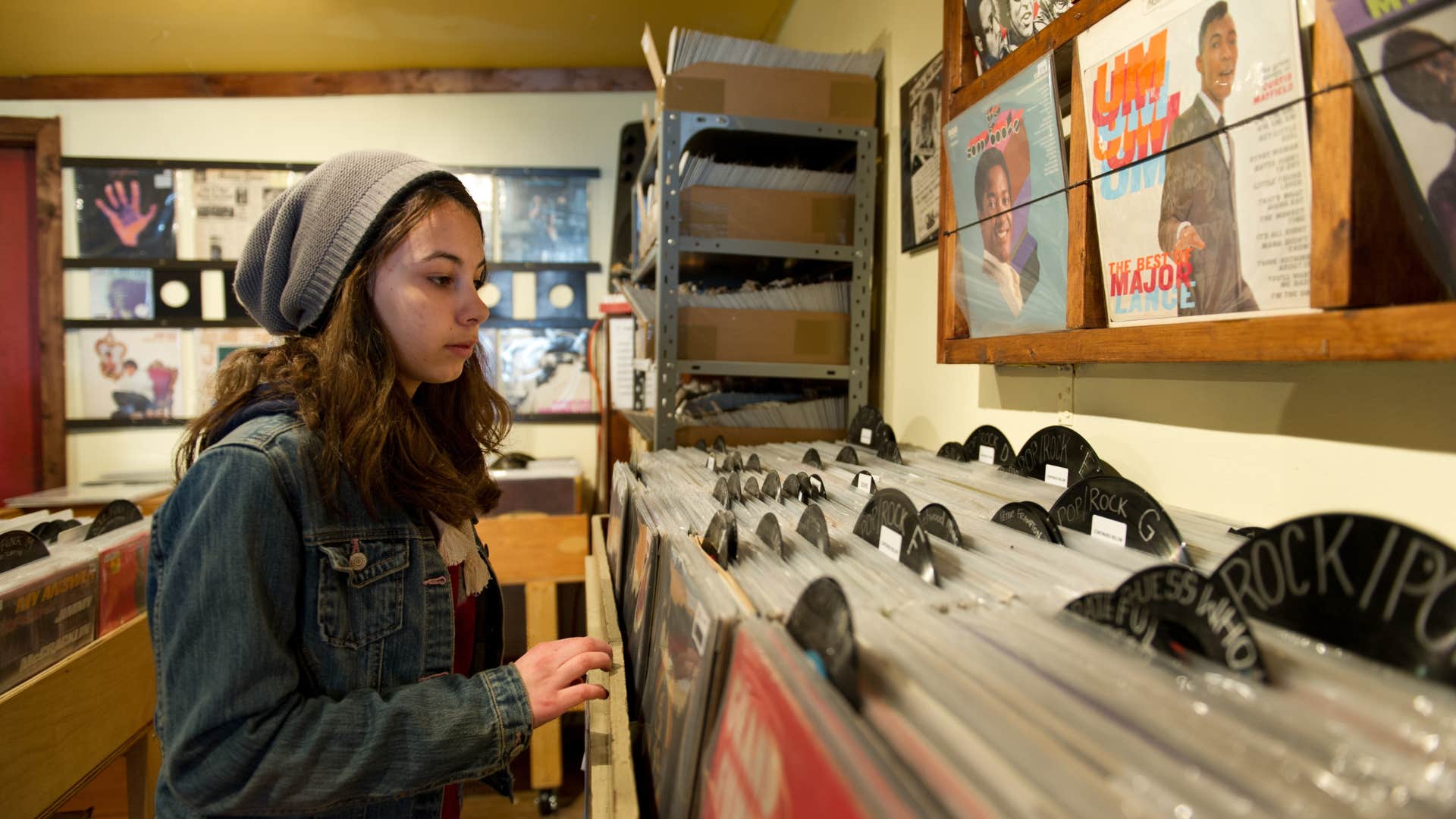Gen Z Grew Up Online — But As A Millennial Parent, I Worry We’re The Real Screen Addicts
As Millennials have developed modern technology, they may have become its most dependent users.
 Becca Tapert | Unsplash
Becca Tapert | Unsplash I used to roll my eyes at Gen-Z’s TikTok obsession — until I realized I might be worse. Five years ago, my life split in two. My partner and I left London – the place I’d grown up and built my adult life — for a small village in rural Cambridgeshire. We had just crossed into our thirties, still feeling invincible, still going out late, still imagining we’d be the cool parents someday.
Then the pandemic hit. And I had three babies in under three years. Fast-forward to now: we’re in the school lunches, cars-on-finance, calendars-full-of-birthday-parties stage of life — the one I swore would never get me.
Like many millennial parents, I found myself raising small children while my own world shrank to the size of a screen. My social life, my work, even my escapism — all of it moved online. It wasn’t just busyness. It was loneliness. And I didn’t realize how much of myself I’d lost to it until the night I finally stepped out of it — and into a room full of teenagers.
Gen Z grew up online, but as a Millennial parent, I worry we're the real screen addicts
 Alessandro Cancian / Shutterstock
Alessandro Cancian / Shutterstock
A friend’s band was playing a gig at the Electric Ballroom in Camden. It was our first night out in five years. No pregnancy. No newborn was strapped to me. No need to rush home before a bedtime meltdown. Just the two of us, dazed and unsure — but out.
I expected glowing phone screens, half-watched Instagram Stories, maybe a tinge of sadness about what youth culture had become. Instead, I saw point-and-shoot digital cameras. Teenagers genuinely thrilled to be there. A long queue for CDs and vinyl.
It wasn’t an isolated moment. Gen-Z is quietly reviving physical media. In 2023, vinyl sales hit their highest levels since 1990, and under-25s accounted for a huge chunk of that. According to Luminate’s Year-End Music Report, their love for vinyl is about more than sound. It’s about feeling and something real.
The band we’d gone to see — Panchiko — had formed in the late ’90s, recorded music in a bedroom, and burned it to CD-Rs before fading into adulthood. In 2016, a Gen-Z teenager found one of those discs in a charity shop, uploaded the music online, and unknowingly sparked a cult revival. Now the band’s touring again, playing to crowds of kids born after they broke up. Watching that crowd, I couldn’t help comparing them to my own generation.
Millennials were the last to grow up offline, but most of our adult lives have been swallowed whole by the internet.
Our personal histories are scattered across Facebook albums, tagged photos, and dormant blogs.
We work on Teams, parent through WhatsApp, and celebrate major life moments on Instagram. We didn’t choose it — we adapted. And somewhere along the way, many of us stopped noticing how much we’d given up. In contrast, Gen-Z — raised inside the algorithm — seems to already be looking for the exits.
Nearly half of U.S. teens say they spend too much time on social media, according to a 2024 Pew Research Center report. And just as many say they’ve taken steps to cut back: deleting apps, taking breaks, and — maybe most importantly — showing up in the real world.
It’s not that Gen Z has rejected tech entirely. It’s that they’re carving out rituals that slow things down: vinyl, flip phones, disposable cameras, in-person connection.
Photos that look real. Meanwhile, we all live with robots in our pockets. From ChatGPT to app-fed decision trees, AI now guides everything from our shopping habits to our emotional coping. It’s convenient, but quietly unnerving.
The line between human and machine is blurring. And maybe that’s why the hunger for authenticity is beginning to break through.
That night in Camden reminded me that connection is still possible. That attention, once fragmented, can be gathered again. That meaning doesn’t have to come from speed, but from stillness.
We often joke about how addicted teens are to their phones. But what if they’re the ones leading us out of this mess? This isn’t a generational war. But it’s worth acknowledging that the generation we label “digital natives” might already be pushing back — more consciously, more creatively — than we ever did.
Our children — all under four — are growing up in a world we can barely predict. But maybe what they’ll inherit isn’t just burnout. Maybe they’ll find a way to balance the tools of technology with the need for depth, for presence, for pause. That night reminded me not just of who I was, but of what I still want to pass on. Not fear, not exhaustion, not distraction. But the hope that they’ll know when to log off. And remember what it means to be human.
Susannah McIntyre is a writer, communications strategist and mother of three under four. She has had articles published in the Independent, The Times of London, Medium and Huffington Post among others.

